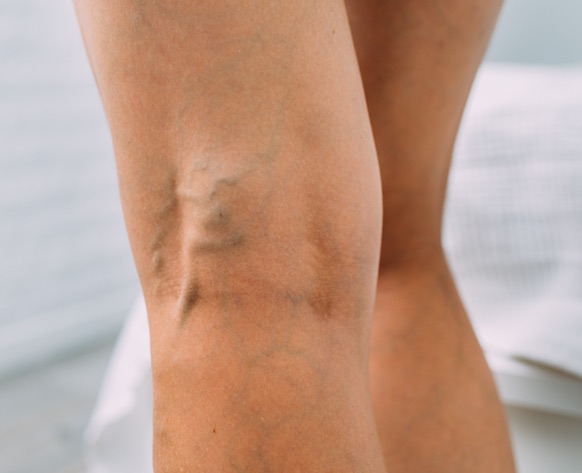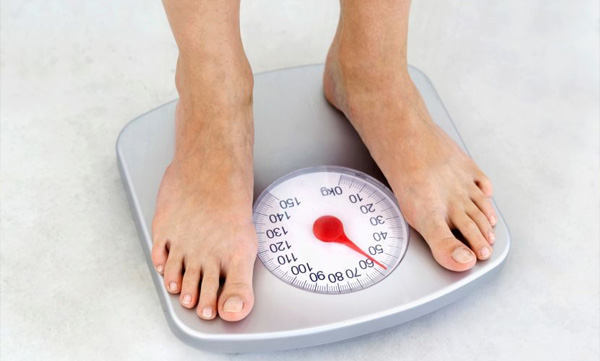How many different diet plans have you heard of or read in the past where you’ve been asked to eliminate carbohydrates from your diet? … more


Obesity or being overweight is a disorder when one's body accumulates excessive fat or weight to the extent that it causes cosmetic concern and leads to specific health issues.
Physicians and health guides identify obesity by determining the person's BMI (Body Mass Index). BMI is a simple calculation of dividing body weight by height in kgs and meter square units, respectively. A person with a high BMI is considered obese. Anyone with a BMI of 30 or more falls into this category. BMI values are gender-neutral but do not apply to kids and youngsters aged between 2 to 19 years, as they are ranked based on a separate BMI index for children.
It is rather difficult to measure body fat. We cannot physically look at a person and decide if they are overweight or obese. So, we rely on a BMI calculator to determine obesity. Anyone with a BMI of 18.5 or less is underweight, whereas, a person with BMI score of 30 or more is classified as obese.
Other than calculating BMI, health and wellness experts also look out for symptoms of obesity. These symptoms are not exclusive but may give a prior indication of the condition.
Obesity can cause a lot of discomfort, especially while sleeping. Overweight people often suffer from a condition called Sleep Apnea, a critical sleeping disorder in which breathing starts and stops repeatedly. It may lead to very loud snoring. People suffering from Sleep Apnea often feel tired and restless despite a full night's sleep.

Excess body fat around the neck and chest can make obese people feel stuffy by making it difficult to breath freely and deeply. It happens because the extra fat restricts the airflow in and out of the lungs. In the long run, it can lead to severe respiratory problems. So, if you are overweight and are having trouble breathing, immediately seek expert help.

Our backbone balances the torso over our lower body. Putting on extra weight around the abdomen creates pressure on the pelvis, hence, arching and straining the lower back. This leads to frequent back pains in obese people. If left untreated, obesity can lead to acute back problems like spondylitis or even cause a vertebrae fracture.

Our legs and knees bear the weight of our body, so, it's obvious that an increase in weight will lead to unwanted pressure on the lower joints. Most people suffering from obesity also suffer from knee pain. That's why we recommend consulting a health expert for weight loss as certain self-help exercises for weight loss can put further pressure on your knee joints and make it worse.

A high BMI may have many adverse effects on your skin. It affects the natural moisturizing function of our skin, leading to dryness & roughness. Also, the excessive expansion of blood vessels may change the skin color and can be an indicator that your weight has increased beyond a safe level.

In people suffering from obesity, the fat that accumulates near the abdomen pushes the stomach inwards, causing an upward movement of the fluids inside towards the food pipe. Thus, causing a frequent acid reflux disorder or GERD. If you are suffering from frequent heartburn and acidity, it might be an indicator that you are gaining unhealthy weight.

Excess body weight tends to put pressure on the veins in our legs by restricting the upward blood flow and pressurizing the veins and valves, making them enlarged or swollen. Appearance of these varicose veins on your thighs and ankles can be an early indicator of obesity and you should consider meeting a health coach to chalk out a weight loss regimen.

The best way to lose weight is to go slow and steady. Any diet or exercise regimen that claims to reduce weight in a short span of time may give you good results but will not be sustainable and healthy. Moreover, any sudden change in your body function may cause other health problems in the future. Here are a few good and healthy ways to reduce weight to start with:
Picking a weight loss plan requires focusing on factors unique to your body's needs. In that sense, choosing a diet plan is like picking a dress. Not every dress suits every person and there are certain factors to consider, as is the case with diet plans.
Starting a new diet plan demands giving up junk and adding super foods to your diet. But not all super foods suit everyone. You might discover that you are allergic to certain diet components. Continue eating them without supervision or consultation and you may end up dealing with completely new health issues. So, before you add a new ingredient to your diet check with a health coach to make sure it suits your body.
You also have to consider any underlying medical condition or disorder that may hamper your diet and exercise plans. For example, cinnamon is considered good for weight loss but it may interfere with your sugar levels. A health coach can help you make sure you are eating the right thing and in right quantity.
Considering your lifestyle, habits, and work commitments, your weight loss plan needs to be flexible and yet able to achieve the desired results. Coaches can help you make custom weight loss plans that fit your needs and are effective in the long term.
Always pick a plan that caters to your likes and dislikes. It is important to like what you eat and how you exercise to continue with a plan and get fruitful results. Most weight loss plans fail because they include things which are not enjoyable for the person implementing them.
Weight loss or no weight loss, everyone needs a balanced diet! Specially when you are looking for a major weight loss and body changes. Make sure that you are getting balanced and nutritious diet, consult a health coach instead of resorting to steep cut in calories and reduction of certain key nutrients.
A good diet plan will not focus on just food. Any kind of physical activity along with good diet is the key to achieving weight loss targets. An expert can help you select the best form of workout that goes with your diet plan, considering factors like, age, medical health, lifestyle, etc.
The Internet, books, and magazines are full weight loss programs and diet plans. Each claiming effectiveness and promising successful results. But what suits your body can only be determined through a holistic wellness score. A health and wellness coach will be able to understand what your body needs and help you start a safe and successful weight loss journey.
So, how does a health and wellness coach help you lose weight?




How many different diet plans have you heard of or read in the past where you’ve been asked to eliminate carbohydrates from your diet? … more

Overweight and obesity are defined as abnormal or excessive fat accumulation that presents a risk to health. Overweight and obesity are major risk factors … more

Ever wondered if one size fits all concept was applied to all items- shoes, clothes, food choices, choice of sport, etc. How would the world look like? … more

Simple lifestyle habits can facilitate that weightloss you’ve been hoping for. Read my article in DailyO … more

For years, we have tried to reduce fat consumption without a clear distinction between good vs. bad fats in hope of better health… more

Health and Wellness coaching has a great impact on weight management which is very significant both clinically and statistically… more

Congratulations!! After much perseverance and hard work, you have reached your desired target weight. Losing weight is one part of the journey … more

Ever heard of someone talking about having their gallbladder removed? Do we really need to remove an organ from our body to eliminate pain … more

In my last blog, I talked about the function of the Gallbladder, what causes gallstones and how to diagnose if you have gallstones. I understand most doctors … more

Clean eating is making better choices when choosing foods. It is about eating more of the best and healthiest options in each of the food groups and eating less … more